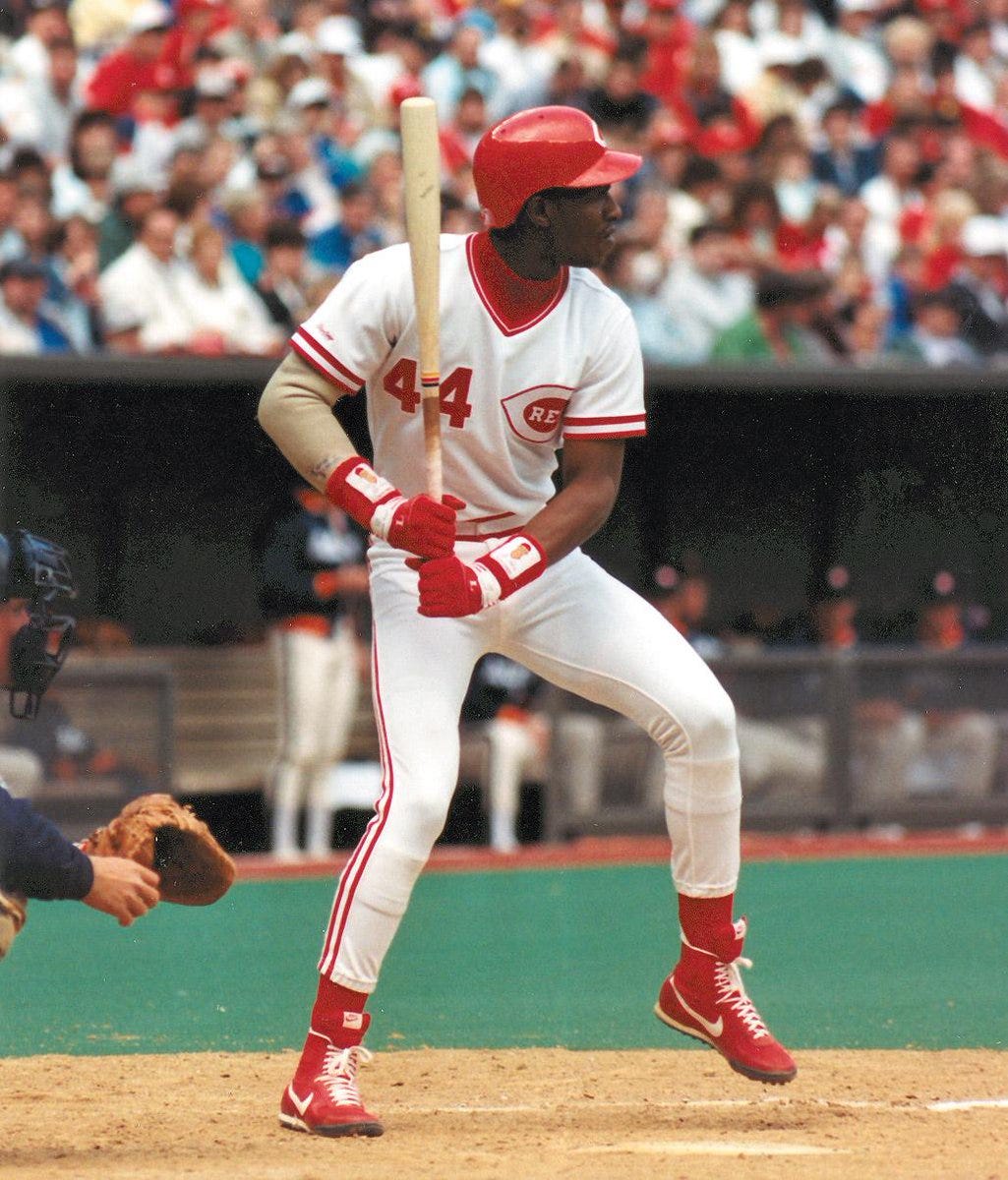Eric Davis: A Warrior’s Journey
Pound for pound, one of the top players of the classic baseball era
Eric Davis’s MLB career spanned 18 years, from 1984 through 2001. During that time, he averaged 90 games a year. An MLB season is 162. That’s how much time he was off the field. Yet if you look at his career statistics “per 162 games,” they are arguably Hall of Fame caliber.
In more than 1,600 games, Davis posted 28 HR, 93 RBI and an OPS of .841. That latter figure is just below HOFers George Brett, Jim Rice and Orlando Cepeda.
Eric Davis was born on May 29, 1962, in Los Angeles, California, during a period when baseball remained a popular pastime in America. He grew up in South Central Los Angeles, an area known for its violent past rather than its baseball players. Yet that hard-nosed environment spawned one of the Toughest Outs around. Davis, like many other kids in the neighborhood, participated in a variety of sports, excelling at baseball and basketball at Fremont High School, which also produced Hall of Famer Bobby Doerr generations ago.
Although he was an outstanding athlete, baseball was not his primary focus. He loved Willie Mays, a player who combined power, quickness, and defensive brilliance, characteristics Davis would someday embody. His exceptional quickness made him a natural center fielder with exceptional athleticism. Scouts, however, questioned whether he could turn his innate talent into professional success. Many people thought he was too fragile to face the rigors of Major League Baseball, wondering if his thin build could bear the physical demands of the game.
Despite the skepticism, Davis' high school performances piqued the interest of the Cincinnati Reds, who selected him in the eighth round of the 1980 MLB Draft. The path to the major leagues, however, would be anything but easy.
Once in the minors, Davis' innate potential was evident. He was quick on the bases, a power threat at the plate, and a defensive standout in the outfield. However, as scouts had predicted, his body became an issue. Early injuries hampered his growth, casting doubt on his ability to advance through the system. Davis refused to let setbacks define him. He worked relentlessly to gain strength and refine his talents.
From South Central to 30-30 star
He had his first major league call-up in 1984, but it wasn't until 1986 that he truly broke out .277 with 27 home runs and 80 stolen bases is a unique and dynamic combination of power and speed. The following year, he made another step forward by hitting .293 with 37 home runs, 50 stolen bases, entering an elite group of players in baseball history.
Despite his talent, injuries plagued him. Knee injuries, muscular strains, and shoulder problems all hampered his progress. Just when he thought he was on the verge of superstardom, his body betrayed him.
Despite his injury troubles, Davis provided remarkable performances. In 1990, he was instrumental in guiding the Reds to the World Series triumph. In Game 1, he smashed a home run against the much fancied Oakland Athletics, laying the groundwork for Cincinnati's incredible sweep. However, calamity struck in Game 4, when Davis lacerated his kidney while diving for a catch. The damage was so severe that it necessitated surgery and weeks in the hospital, undermining what should have been his career's pinnacle.
Throughout his career, Davis was considered one of baseball's most feared players. He made two All-Star appearances, won three Gold Gloves for his superb defense, and finished with 282 home runs and 349 stolen bases. His statistics, however, reveal only a portion of the story. Those who played with him recognized that if he had remained healthy, he could have been one of the best players of all time.
Bigger than baseball
Davis' most difficult struggle came in 1997, when he was diagnosed with colon cancer while playing for the Baltimore Orioles. He underwent surgery and chemotherapy after facing a more formidable opponent than any pitcher. Incredibly, he made a return in 1998, demonstrating his unparalleled resilience.
After retiring in 2001, Davis dedicated himself to training new players, particularly African American sportsmen dealing with the pressures of professional baseball. He worked in player development for the Reds and became an advocate for colon cancer awareness, emphasizing the value of early identification.
Eric Davis' story is about perseverance, resilience, and overcoming adversity—not just baseball. His experience demonstrates that, while talent can propel you forward, heart and drive characterize true greatness.


